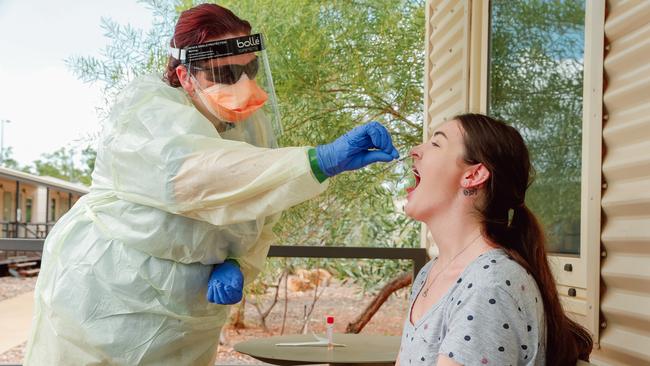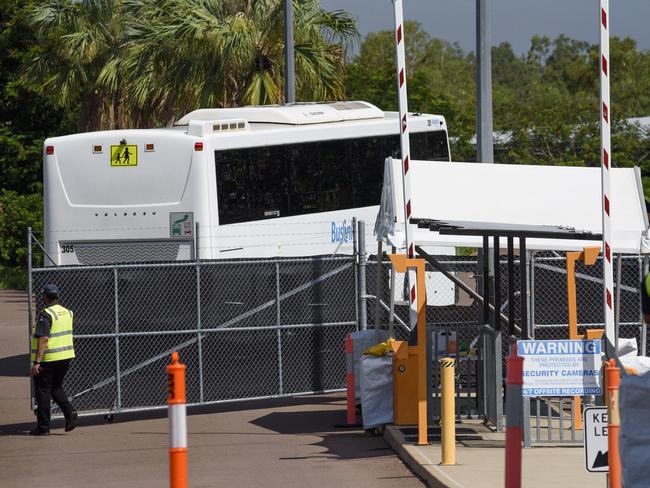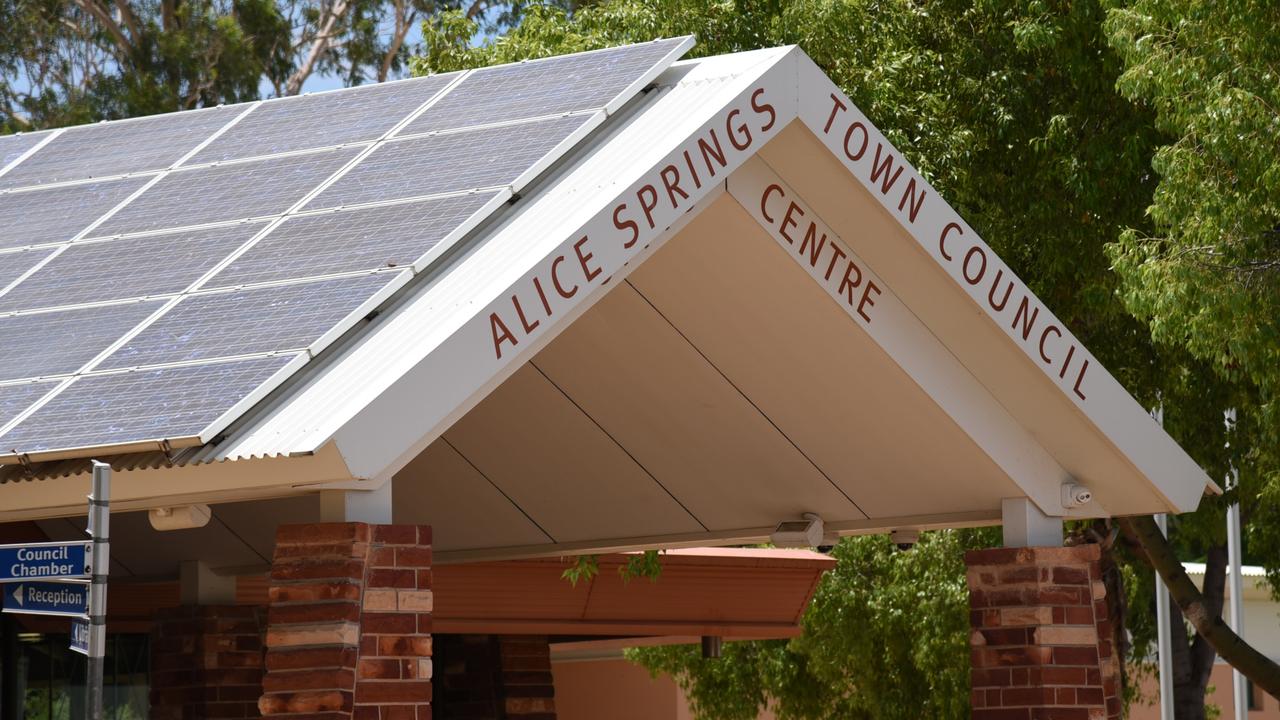Howard Springs Covid-19 quarantine facility detainees suffered ‘low’ mental distress, CDU study finds
People quarantined in the Northern Territory’s Howard Springs facility as a result Covid-19 travel restrictions suffered some psychological distress, researchers have found.

News
Don't miss out on the headlines from News. Followed categories will be added to My News.
Howard Springs quarantine facility created mental health issues for detainees during their Covid-19 quarantine stay.
The study involved a series of interviews with 10 workers and 10 other people quarantined, along with an analysis of depression, anxiety and stress levels.
The NT’s Chief Psychiatrist, Dr David Mitchell, authored the report, saying the facility had a range of unique conditions that alleviated stress levels.
“Some of the inadvertent arrangements of Howard Springs being single storey, having access to light, having access to fresh air, being able to exercise obviously helped people’s psychological wellbeing,” he said.
Quarantine procedures at the facility typically involved new arrivals being cordoned off into units, either alone or shared with family members, where they would stay for 14 days.
Guests had occasional access to a swimming pool, and opportunities for isolated exercise.
They were permitted to use their balconies wearing masks, something Dr Mitchell said created a “communal atmosphere” as they could converse with neighbours.

The study also found people arriving from Victoria had notably lower levels of distress, likely due to a sense of escaping the strict lockdown measures imposed by the Victorian government.
“What we postulated was ‘I’m here at the finish line, I finally got out of lockdown in this state during a potentially cold winter and now I’m in the sunshine of the Northern Territory’,” Dr Mitchell said.
The facility housed 64,000 international and domestic guests over two years of pandemic travel restrictions, at its peak processing up to 2000 people a day.
Professor of Mental Health at CDU, and co-author of the report, Daniel Bressington, said the effectiveness of the Howard Springs model could have implications for future pandemic preparedness.
“Howard Springs was definitely a better environment [for mental health] and much better for preventing infections because there were no infections as a result of being quarantine as far as we know, whereas there were in some of the hotel quarantines,” Professor Bressington said.
Biostatistician and epidemiologist Dr Zoë Hyde said mandatory quarantine played a major role in reducing deaths during the pandemic.
“There will inevitably be other pandemics, so we need facilities like Howard Springs,” she said.
“There are some nasty strains of influenza out there that have very high mortality rates.
“If we’re unlucky and bird flu takes off, we need quarantine centres that we can use immediately.
“We don’t want to be waiting for proper quarantine to be built and have to use a leaky hotel quarantine system again.”
More Coverage
Originally published as Howard Springs Covid-19 quarantine facility detainees suffered ‘low’ mental distress, CDU study finds




